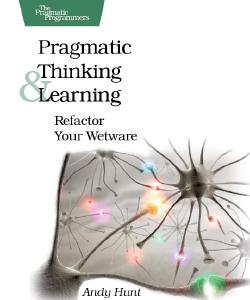In most cases "self help" books come as a result of personal research
and are "prescriptive heuristics," "trust us this works" methods.
On the other side, strict scientific research is usually abstract and not practically usable.
So learning process is left to empirical experimentation, "learning on own mistakes"
and following hints from various sources. Not very effective, to say the least.
There are almost no learning resource, physical or online, that starts or contains a "mental map"
and "learning path". What a waste, and also an opportunity to improve.
Leaning materials should come with a "users guide."
Preferably such content would be structured ("a graph"), open / editable / web based,
and self-improving based observation of many users.
And it should not be a "linear" "waterfall" method anymore:
software development has perfected many better, agile iterative methods.
Anyway, here are a few interesting resources about learning techniques:
Deliberate Practice (learning method) - Wikipedia, the free encyclopedia
"...how expert one becomes at a skill has more to do with how one practices
than with merely performing a skill a large number of times.
An expert breaks down the skills that are required to be expert
and focuses on improving those skill chunks during practice or day-to-day activities,
often paired with immediate coaching feedback.
Another important feature of deliberate practice lies in
continually practicing a skill at more challenging levels with the intention of mastering it."
Summary of The First 20 Hours, by Josh Kaufman | Pablo's miscellany
Ten major principles of rapid skill acquisition:
- Choose a lovable project.
- Focus your energy on one skill at a time.
- Define your target performance level.
- Deconstruct the skill into subskills.
- Obtain critical tools.
- Eliminate barriers to practice.
- Make dedicated time for practice.
- Create fast feedback loops.
- Practice by the clock in short bursts.
- Emphasize quantity and speed.
Ten principles of effective learning:
- Research the skill and related topics.
- Jump in over your head.
- Identify mental models and mental hooks.
- Imagine the opposite of what you want.
- Talk to practitioners to set expectations.
- Eliminate distractions in your environment.
- Use spaced repetition and reinforcement for memorization.
- Create scaffolds and checklists.
- Make and test predictions.
- Honor your biology.
a new material by John Sonmez of SimpleProgrammer.com
- Get the Big Picture
- Determine the Scope
- Define Success
- Find Resources
- Create a Learning Plan
- Filter Resources
- Learn Enough To Get Started
- Play Around
- Learn Enough To Do Something Useful
- Teach

The Pragmatic Bookshelf | Pragmatic Thinking and Learning
"Journey From Novice to Expert"
Dreyfus model of skill acquisition - Wikipedia, the free encyclopedia
No comments:
Post a Comment